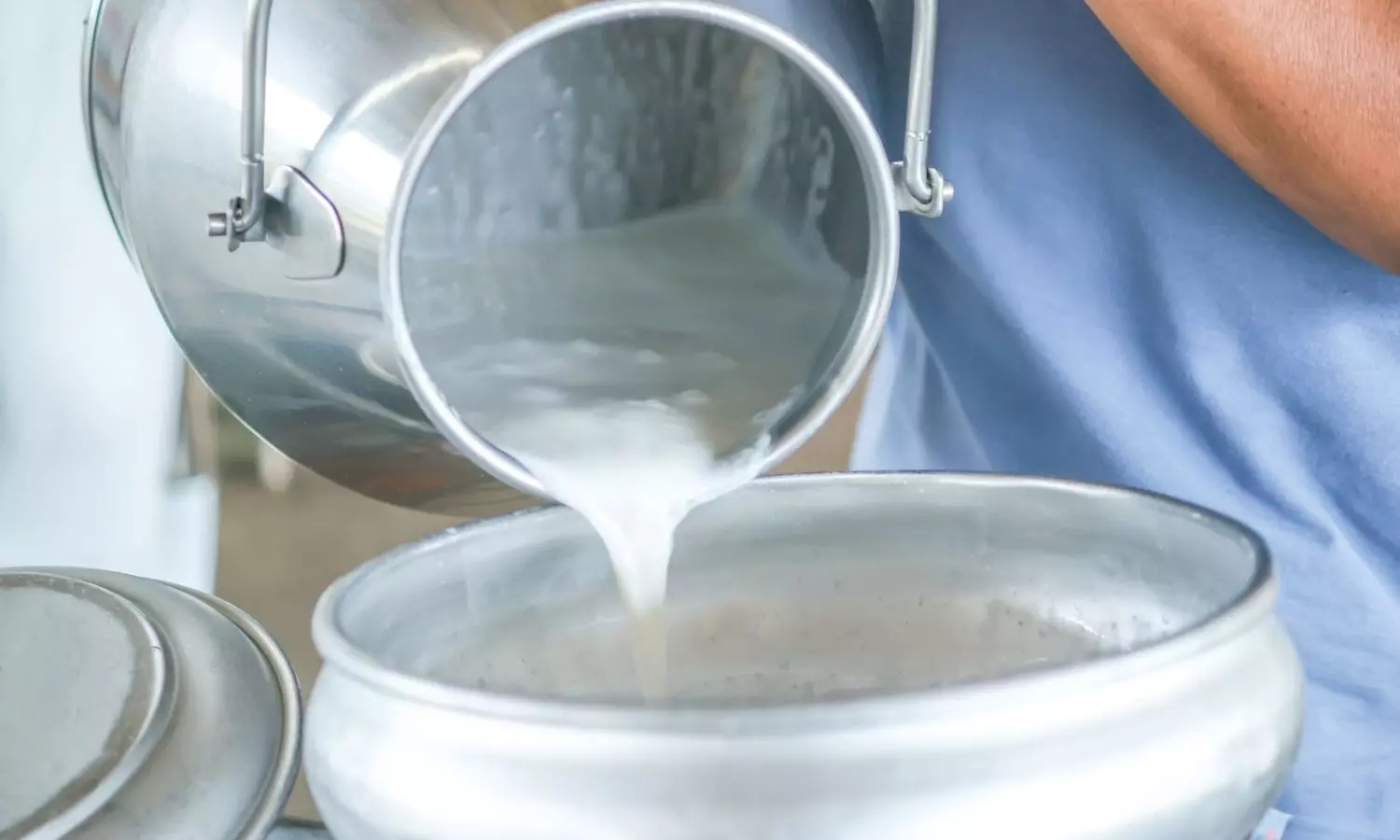Influenza Virus Lurks in Raw Milk: Study Warns of Health Risks without Pasteurization

New York: Influenza A virus can survive in raw milk for days and its genetic material can persist for weeks, raising serious concerns about the risks of consuming unpasteurized dairy products, a Stanford study reveals.
The research, published in Environmental Science & Technology Letters, reveals that the virus can remain infectious for up to five days in refrigerated raw milk (4°C), while its genetic material can persist for at least 57 days without significant degradation.
The study, led by Dr Alessandro Zulli, Dr Mengyang Zhang, Dr Sehee Jong, Dr Catherine Blish, and Dr Alexandria B. Boehm, utilized the H1N1 influenza virus as a surrogate for the highly pathogenic avian influenza H5N1.
The findings show that the infectivity of the virus decreases markedly over time, with a 99% reduction achieved within 2.3 days. However, the prolonged stability of viral RNA presents challenges for environmental monitoring and food safety assessments.
“While the infectivity of the virus decreased significantly over a few days, the prolonged presence of viral RNA highlights a potential risk for environmental and food safety assessments,” explained lead author Dr. Alexandria Boehm.
The researchers also examined the effects of pasteurization on the virus. They confirmed that heating raw milk to 63°C for 30 minutes effectively inactivated infectious influenza virus. However, viral RNA was still detectable after pasteurization, indicating that while the process ensures safety against active infection, it may not eliminate all traces of the virus.
Dr. Mengyang Zhang emphasized, “Pasteurization remains a critical step in ensuring the safety of dairy products. Yet, the detection of RNA in pasteurized milk emphasizes the need for careful interpretation of molecular biology findings in public health surveillance.”
The findings are particularly significant given the zoonotic potential of influenza viruses and the recent emergence of highly pathogenic avian influenza H5N1 in dairy cattle herds. With an estimated 4.4% of Americans consuming raw milk annually, the risks associated with unpasteurized dairy products are evident.
“This research provides crucial insights into the risks posed by consuming raw milk. With over 4% of Americans consuming raw milk annually, the potential for zoonotic disease transmission is a significant concern,” noted Dr. Zulli.
The study underscores the importance of pasteurization in reducing public health risks, while calling for enhanced surveillance and further research. The researchers highlight the need to investigate the potential role of antibodies in milk from infected animals in affecting viral persistence.
These findings contribute to a growing body of evidence supporting stricter safety practices for dairy products and a deeper understanding of the risks associated with raw milk consumption.


